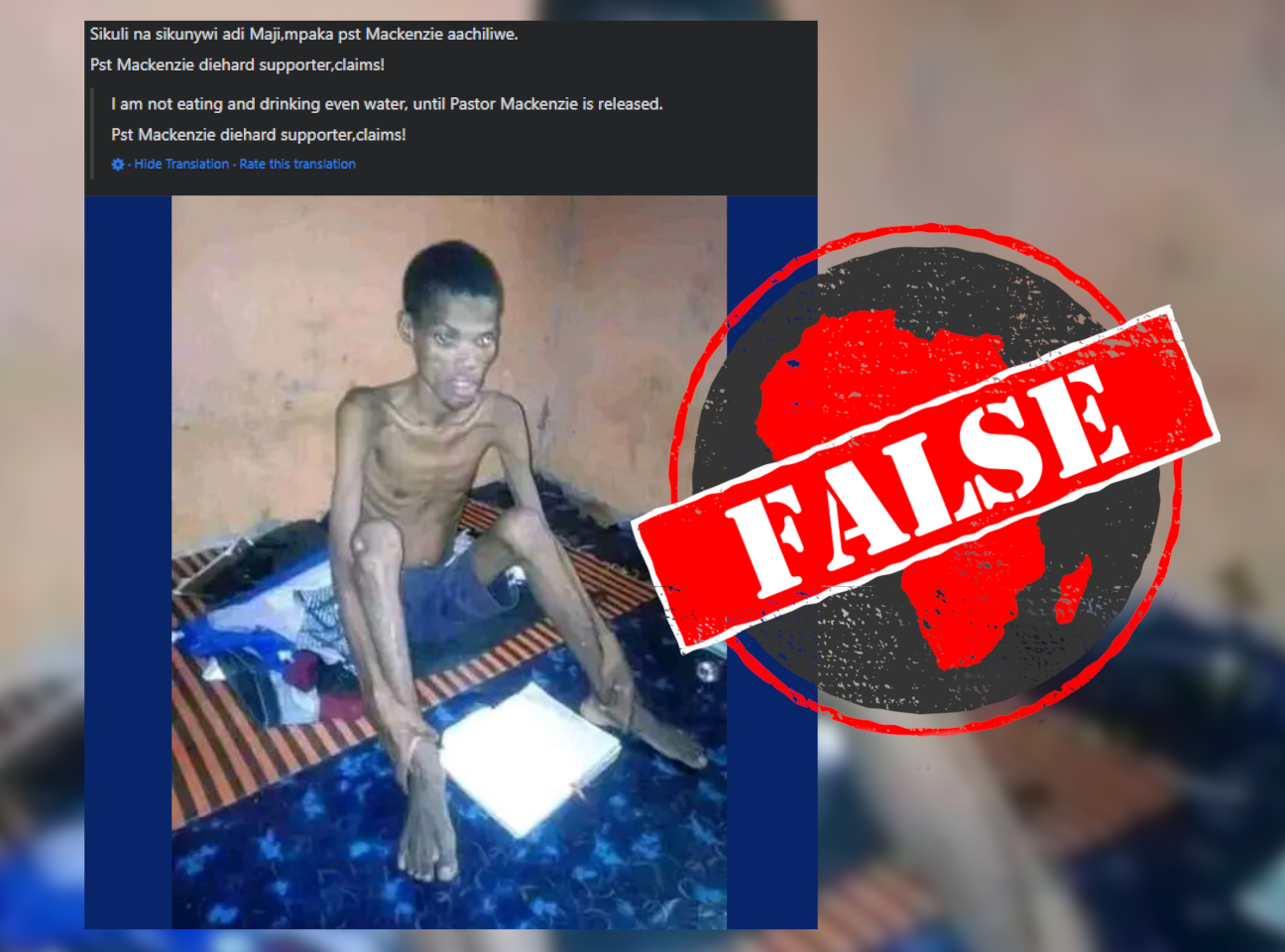IN SHORT: As Kenya digests the grim story of several deaths linked to a cult, a photo, claimed to show a supporter of the cult’s leader, is instead from Nigeria.
In April 2023, Kenya was gripped by grim developments in the coastal county of Kilifi, after scores of bodies, allegedly of cult members, were exhumed.
At time of publication 110 bodies have been recovered from the Shakahola forest in the county. According to media reports, members of the Good News International Church believed that by starving themselves, they would be able to "meet Jesus" in heaven.
Autopsies have revealed that some of the dead may have been murdered.
The pastor of the church, Paul Mackenzie, was taken into custody on April 15.
It is in relation to this story that a photo of an emaciated man sitting on a mat on the floor has been posted to Facebook. It is claimed he is one of Mackenzie’s followers, who has vowed not to eat until he is released.
The man appears to have an open Bible in front of him.
The caption reads: “Sikuli na sikunywi adi Maji,mpaka pst Mackenzie aachiliwe. Pst Mackenzie diehard supporter,claims!”
The Kiswahili loosely translates as: “I am not eating nor drinking even water until Pastor Mackenzie is released.”
But does the photo really show a “diehard supporter” campaigning for Mackenzie's release?

Photo of Nigerian student taken in 2019
A Google reverse image search revealed that the photo first appeared online in September 2019, on Nigerian news websites and blogs.
The photo shows Ikechukwu Oke, a 19-year-old student who fasted for 41 days. According to media reports, Oke was driven to this by family hardship.
He was taken to hospital in the southeastern Nigerian state of Ebonyi. The photo is not of a Mackenzie supporter and was not taken in Kenya.
Republish our content for free
For publishers: what to do if your post is rated false
A fact-checker has rated your Facebook or Instagram post as “false”, “altered”, “partly false” or “missing context”. This could have serious consequences. What do you do?
Click on our guide for the steps you should follow.
Publishers guideAfrica Check teams up with Facebook
Africa Check is a partner in Meta's third-party fact-checking programme to help stop the spread of false information on social media.
The content we rate as “false” will be downgraded on Facebook and Instagram. This means fewer people will see it.
You can also help identify false information on Facebook. This guide explains how.


Add new comment